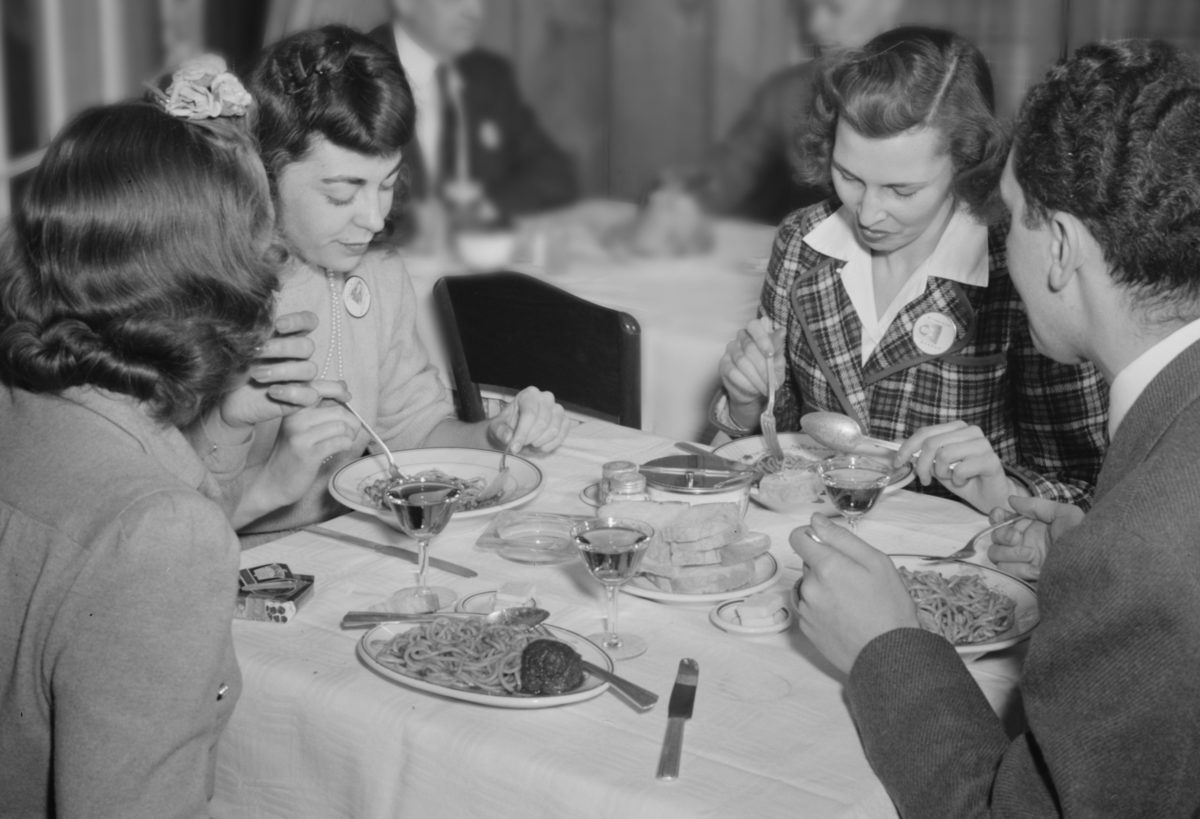Once upon a time in 1957, a BBC news crew decided to broadcast an April Fool’s Day joke. Producers allowed a cameraman a shoestring budget of £100 and the freedom to create a spoof program. It was supposed to be innocent fun.
The result was utter chaos, raging newspaper headlines and the polarization of public opinion…all because many people among the audience had failed to realize that spaghetti did not grow on trees.
The Spaghetti Weevil
If anyone could be fairly blamed for starting all the trouble it would have been freelance cameraman Charles de Jaeger, an Austrian who had helped create Free French broadcasts during World War II and joined the BBC in 1943. De Jaeger wanted to create a spoof segment for April Fool’s Day based on the words of his schoolteacher, who had told the boys in her class that they were foolish enough to believe that spaghetti grew on trees.
He pitched the idea to the producers of BBC’s Panorama segment, a serious and respectable program focusing on current events, society and culture. They agreed. De Jaeger quickly swooped down on a Swiss hotel by Lake Lugano and made every penny of his small budget count towards bringing “homegrown” spaghetti to life in a visual agrarian utopia.
The crescendo of the prank was the participation of eminent journalist Richard Dimbleby, who lent his voice to the broadcast. Dimbleby had become a renowned newsman during World War II. He had braved the front lines, flown with bomber crews on air raids over Germany and described firsthand the horrors of Belsen concentration camp. He had thus effectively become a well-known voice of reason and sober, gritty honesty.
He was also apparently delighted to be able to use his talents for something silly for a change. Amid scenes of smiling women “harvesting” spaghetti from trees, the stolid, trustworthy voice of Dimbleby described the arts of noodle cultivation and the ravages of the ominous “spaghetti weevil.”
Dimbleby did make a point of drawing attention to the broadcast date of April 1 at the conclusion of the segment. But that did nothing to stem the storm that it unleashed.
The controversy
The result was epic. The BBC was inundated with an unprecedented amount of phone calls demanding explanations. Some people recognized that the report was a prank and were outraged. Others wanted the BBC to give them proof to win domestic disputes—the hoax had, in a manner of speaking, provoked “food fights” among families who had divided into camps of believers and nonbelievers.
Others were fascinated by the apparent horticultural revelation—including aspiring gardeners eager to find out how they could obtain and nurture their own spaghetti bushes.
The general state of bafflement that swept across British households in the wake of the BBC report owed to the fact that spaghetti was something of a rare bird in the United Kingdom during the 1950s. Many British people were not too familiar with the dish at that time; it wasn’t a staple of mainstream cuisine nor as widely available as it is now.
The BBC Director General at the time, Sir Ian Jacob, was bewildered by the broadcast and resorted to seeking out the origins of spaghetti in three different books to clear up his suspicions.
Not everybody took too kindly to the fact that the BBC had tricked its audience and the program sparked public debate about the integrity of the media. The broadcasters were heavily criticized by some for duping innocent people into entertaining false hopes of farming spaghetti.
David Wheeler, the program’s producer, remained unrepentant about his role in the spaghetti mayhem, telling the BBC in a 2004 interview that he had “no regrets about it at all.”
“I think it was a good idea for people to be aware they couldn’t believe everything they saw on the television,” he said, “and that they ought to adopt a slightly critical attitude to it.”





